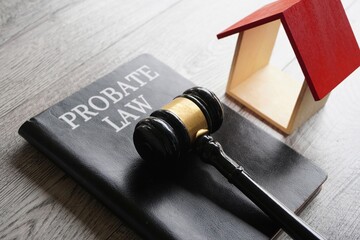When a loved one passes away, many people find themselves struggling with grief and juggling legal and financial matters. A probate attorney can provide valuable guidance and assistance for those entrusted with settling their loved one’s estate (fiduciaries such as administrators, executors, and trustees) or who have died without a will.
Los Angeles Probate Attorney can advise the estate administrator, beneficiaries, and creditors on legal issues. This may include ensuring that the will is valid and meets state law and determining whether the deceased owed any debts or if the estate can afford to pay them. The attorney can also help heirs avoid litigation and settle disputes. In some instances, the attorney can even avoid probate altogether by arranging for property to be transferred in trust, which typically eliminates the need for court proceedings.
When choosing a probate attorney, it’s important to consider how long they’ve been in practice and the complexity of your case. A seasoned attorney will be familiar with local laws and judges’ preferences, which can save time and money. Also, ask about their fee structure and if they charge hourly or a percentage of the estate value.
Probate lawyers can provide valuable advice regarding estate planning, including how to set up a trust and other options for transferring property upon death. By taking the time to discuss your options, you can make sure that your loved ones’ wishes are carried out and that their estate is managed efficiently.
As an executor, you’ll have many tasks to complete, such as marshaling assets, paying heirs and creditors and filing documents with the court. If you’re unfamiliar with the process, it’s easy to make a mistake that could cost you or your loved one’s estate. A probate attorney can help you navigate the process with confidence and ensure that all of your responsibilities are met.
In some cases, a probate lawyer can help you avoid the expense and hassle of a probate proceeding by contesting a will or other legal matters. The attorney can assist with preparing legal paperwork and represent you in court. They can also help you avoid mistakes, which can lead to costly delays and even litigation.
While it’s unfortunate that someone has died, the passing of a loved one often catches us off guard and leaves you with many unanswered questions. If your family member has passed away without a will, the law will determine how their property is distributed according to state intestacy laws. A probate attorney can help you understand these laws and assist you in securing appointment as administrator of the estate.
Document Preparation
Probate lawyers work with a variety of documents, including petitions, notices, orders, appraisals, and other documents required by court rules and procedures. A probate attorney also prepares legal documents that are necessary to settle a deceased person’s estate and transfer his or her assets to beneficiaries.
A lawyer can help heirs and beneficiaries understand their rights and obligations and navigate the process. He or she can also ensure that the estate is properly managed and distributed and that it complies with state laws. He or she can also assist with filing taxes and dealing with creditors.
If a loved one dies, it can be challenging to determine what his or her wishes were in the absence of a will. A probate attorney can help heirs and executors of the estate determine what their options are for settling the estate, including establishing a living trust to avoid the lengthy and complex process of transferring property through the courts.
Some attorneys specialize in probate and estate law, while others practice in multiple areas of the law. An experienced lawyer with a broad range of legal experience can help clients resolve their matters quickly and efficiently.
In some cases, a lawyer may need to help collect and file renunciations, or legal statements from family members stating that they are giving up their rights to administer the estate. He or she can also help locate and assess the value of assets, and arrange for professional appraisals on real estate or other valuable items.
A probate attorney can help heirs and their representatives get the money they deserve from an estate. He or she can assist with initiating probate at the Surrogate Court, conducting an estate inventory and appraisal, preparing tax returns, paying debts and claims against the estate and distributing assets to heirs.
Heirs and their relatives often have questions about the validity of a will or about how to distribute an estate. A knowledgeable and experienced attorney can assist with a variety of issues, including determining the validity of a will, distributing assets, addressing creditor claims, and settling tax disputes.
Litigation Support
It’s a sad fact of life that when someone dies, their loved ones may have difficulty agreeing on how to divide up their property. When disputes arise, a probate litigation lawyer can help settle the dispute and get family members back on track with their inheritance.
The executor of an estate is responsible for collecting and preserving assets, paying estate debts and taxes, and allocating remaining assets to beneficiaries. This process is often complicated and requires a thorough understanding of the law. During the estate administration, it is common for heirs to challenge the executor’s actions and allege that they have violated their fiduciary duties. An experienced estate litigation attorney can provide legal insight and guidance during this difficult time.
Litigation support services are a set of tools and expertise that help attorneys complete their cases more efficiently. They include a variety of tasks, such as document retrieval, eDiscovery, and trial preparation. Many attorneys outsource these responsibilities to litigation support specialists, so they can focus on the strategic elements of their cases.
These experts have the experience and skill to complete these complex and time-consuming requests on an attorney’s behalf. They can also help lawyers locate hard-to-find individuals, like witnesses, and serve them with subpoenas and citations as needed. Moreover, they can provide trial presentation assistance such as trial boards and legal videography to improve the quality of an attorney’s courtroom presentations.
Litigation support professionals must have an exceptional attention to detail and excellent focus. This is why they are invaluable partners to attorneys. They ensure that pleadings are filed correctly, evidence is collected and prepared appropriately, and that documents are not missed due to simple human error. They can even assist with mediation and settlement negotiations if the parties in the case cannot reach an agreement. As a result, these experts help make the legal process efficient and effective for all parties. The attorneys who utilize their services can then focus on the most important aspects of their case and ultimately provide a positive outcome for their clients. This helps to save attorneys both money and time, which in turn helps their clients.
Representation in Court
A probate lawyer assists families to settle their loved ones’ estates after death. They may help beneficiaries and executors with a range of tasks including finding and inventorying assets, paying all debts and taxes, and distributing inheritances according to state laws. They also help in resolving any disputes that arise during the process such as will contests or kinship hearings.
It’s important to find a probate attorney with enough experience in your specific case type to get the job done right. An inexperienced attorney could slow down proceedings significantly and cost you valuable time. You should ask prospective attorneys how long they anticipate the case will take and how much their fees are. Will they charge a flat rate, a percentage of the estate value, or hourly?
You should be ready to answer the probate lawyer’s questions about your case before you hire them. Asking the right questions will ensure you find the best attorney for your situation.
An experienced probate attorney will be familiar with the local rules, forms, procedures, and court officials in your jurisdiction. This will make the process run more smoothly than if you hired an attorney who only practices in another area of law or has never handled a probate case before.
Another benefit of working with a experienced attorney is that they will be familiar with the judge’s preferences and what types of cases they typically prefer. This can make your case go smoother, especially if you have a hard-to-please judge.
Probate cases can be very complex, especially if the deceased had significant assets. In these situations, family members can often disagree over various aspects of the estate, which can lead to lengthy litigation. A probate lawyer can resolve these conflicts to keep the estate moving forward.
If the deceased did not leave a will, their assets are distributed according to state inheritance laws. These laws can differ widely and often go against the wishes of the deceased’s family members. A probate attorney can oversee the distribution of these assets to help ensure that they are allocated in a fair manner.

